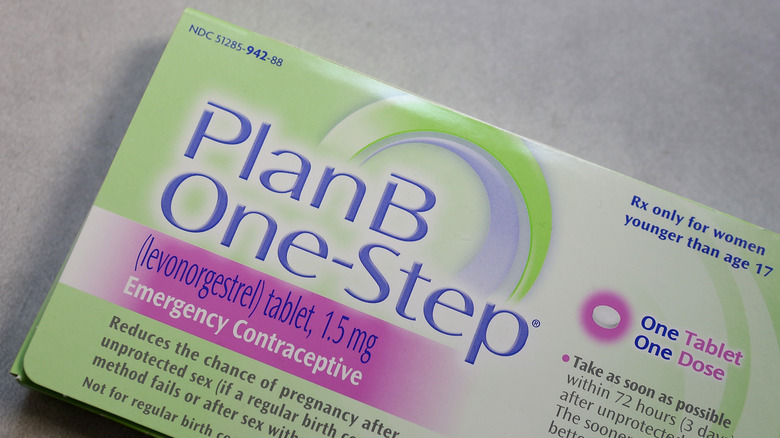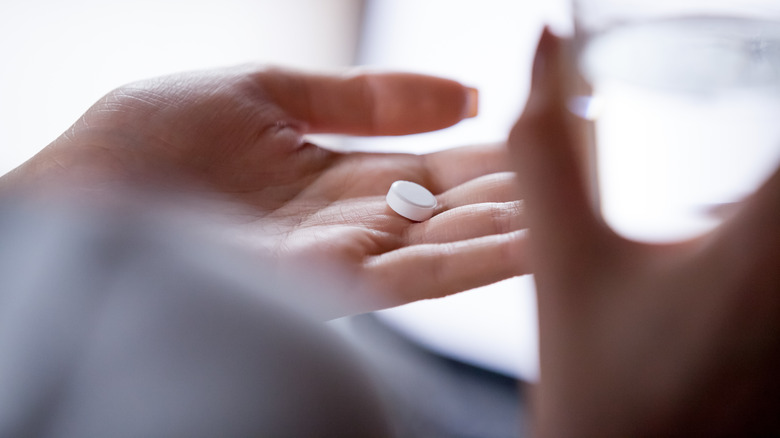Can You Take Too Many Plan B's?
Plan B, also known as the morning-after pill, is an emergency form of emergency contraceptive meant to be taken after having unprotected sex or when regular contraceptives fail, like a broken condom. Health experts recommend that it's better to take the pill as soon as possible, and within five days of unprotected sex, according to WebMD. It's important to note that the sooner you take Plan B, the more effective it is at preventing pregnancy. And you can buy these pills without a prescription and over the counter, regardless of your age or gender (via Planned Parenthood).
While there are a variety of emergency contraceptive pills using various kinds of hormones, they all generally work the same. The pill stops pregnancy in three ways: by temporarily stopping ovulation, stopping the sperm from fertilizing the egg, and, if an egg does become fertilized, preventing the egg from attaching to the uterus (via Plan B). But are there any side effects from using the pill?
The short and long-term effects
Experts suggest taking too many Plan B pills is not dangerous and they won't affect your fertility over the long run, according to Healthline. But there is some evidence to suggest that relying on emergency contraceptives as the main form of pregnancy prevention is risky in other ways. In fact, women who use the Plan B regularly may up their chances of becoming pregnant within a year to 35%. Another consideration is the emergency contraceptive brands you use. While Plan B can be used multiple times within the same menstrual cycle, others cannot. Additionally, mixing different brand names can pose issues including lowered effectiveness (via Healthline).
While there aren't serious long-term effects, there are short-term symptoms that may occur. These include dizziness, fatigue, headache, nausea, cramps, and vomiting, according to Medical News Today. However, these symptoms should resolve within a few days.
There are lots of options when it comes to birth control
Long-term use of Plan B is not suggested as a go-to form of pregnancy prevention and it's not as effective at preventing pregnancy as other forms of birth control (per Planned Parenthood). When Plan B is taken within 24 hours after unprotected sex it is 95% effective against pregnancy, according to Peel Public Health. When taken after the 49-hour mark, that number drops down to 58%.
Comparatively, the correct usage of other forms of birth control, including the estrogen and progestin pills, male condoms, contraceptive patches and rings, and IUDs all have 98% or higher effectiveness (via NHS). If medication is not desired, there is also the natural family planning method, which includes monitoring your cervix and basal body temperature throughout the duration of your cycle. If you find you need more frequent protection beyond emergency contraception, it may make sense to speak with your doctor or healthcare provider to explore other options.


